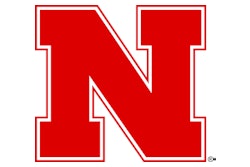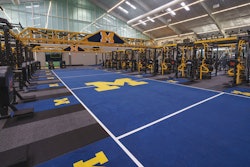Copyright 2017 N.Y.P. Holdings, Inc.
All Rights Reserved
The New York Post
THERE'S NO tying. There's no tying in baseball.
The most famous tie in major league history — the 2002 All-Star Game — was so infuriating and embarrassing to then-commissioner Bud Selig that it led to the Mid-Summer Classic determining home-field advantage.
We like resolution. We like tradition. I get it. Yet, I think the major leagues should allow ties if a game remains deadlocked after 12 innings.
I know that will anger folks who don't want major alterations made to a game that they find close to ideal as is. But the reality is we have a pro-active commissioner, and improving the view-ability of the product and lowering injuries are his obsessions.
So let's consider the 15-inning game the Mets won Thursday in Miami:
• Josh Smoker threw three innings for the first time since returning to pro ball in 2015 after shoulder surgery. Hansel Robles worked a fourth straight day despite manager Terry Collins trying to do all he could not to use him. Had Robles said he was incapable of pitching again, Collins was prepared to have catcher Rene Rivera pitch and Zack Wheeler - who missed the past two seasons after Tommy John surgery - play first base.
At a time when there are protective measures taken to try to preserve arms, these elongated games put pitchers and, on occasion, position players in harm's way.
• By the conclusion of the 5-hour, 38-minute game, there were a couple of hundred people at Marlins Park. So most of the paying audience - with a workday the next day - gave up. The peak viewing audience on SNY came between 10:45-11 p.m. - about the ninth inning - then fell off by nearly 26 percent by the time the game ended at 12:50 a.m., yet to be fair, still was above 390,000.
• The Marlins were forced to use Adam Conley, their scheduled starter Friday. They bumped up Edinson Volquez on normal rest, and flipped Conley to Saturday.
But without a timely off day, the Marlins would have been scrambling for a starter as teams often are in this situation. So the quality of a future game - for which fans will be paying - would be impacted by extended extra innings. And what will those fans see from the players who had to endure more than 5¹/ hours one day and come back the next?
• Nick Wittgren pitched three perfect innings for the Marlins. His reward? He was sent down because Miami needed to get another fresh arm on the roster.
T.J. Rivera was demoted by the Mets to get Sean Gilmartin up. This happens all the time in these types of games: A player does his job, and because he has options is sent down, costing him major league salary and service time - all because a singular game went too long.
I know to a certain segment this will all sound like boo-hoo and the continued softening of the game. There are those who want to see the attrition and how teams handle that over a long, grueling season, and extended extra-inning games are part of the process.
But my question is, beyond tradition, why are we putting players through these marathons?
We know more than ever that performing at exhaustion levels increases the potential for injury. We know viewership - at the game and on TV - drops from peak the longer and longer a game goes.
We already are asking fans to stick around on average, for 3 hours and 5 minutes to play regulation.
Extra innings tend to be boring, with tiring players all trying to hit homers to finish things as soon as possible. Thus, even less base-to-base action than normal.
Playing an additional third of a standard game - three more innings - feels like enough extra time to let one or the other team win. I suspect if there were a cap on games, the psychology of players might change to try to build a run to avoid a tie, though it also is possible players still will just try to belt homers to do so. Either way, it would have a finish line, so fans more comfortably could stay to better anticipate when a game will end.
When rosters expand in September and the meaning of each game is more clearly understood, I would play until resolution, so there would be no ties in the final month.
On average, teams play 3-4 games of more than 12 innings a season. Would it really appall folks if a team were, say, 89-703 as opposed to 90-72? Did you know that last year the Cubs were 103-58-1 and the Pirates 78-831 because their late September game that was 1-1 and suspended after six innings because of rain was not resumed because it did not impact the playoffs?
The world did not stop because of a tie, and the world would continue if a team finished 89-70-3.
Plus, I think this is better than the alternative the Commissioner's Office is at least considering, due to concerns about injury and boring the customers. This season, Gulf Coast League, Arizona Rookie League and probably the Dominican Summer League games tied after nine innings will begin the 10th inning and each subsequent extra inning as needed with a runner on second and no outs.
MLB is doing this as an experiment. It is not close to installing it in the majors and - if it ever does - it almost certainly will be after several extra innings are played.
But this is where the game is heading, whether traditionalists like it or not. The Commissioner's Office wants to keep the product attractive to more than just the diehards while protecting the bodies of its most expensive and vital commodities - the players. Thus, if a game is not settled through 12 innings, it's fit to be tied.
Read More of Today's AB Headlines
Subscribe to Our Daily E-Newsletter
Terms and Conditions Privacy Policy































